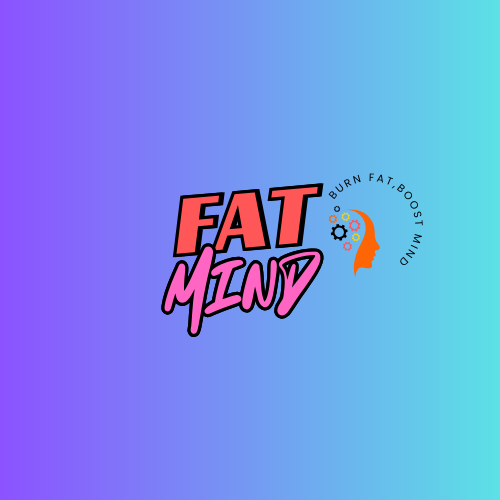Introduction: The Overlooked Link Between Belly Fat and Mental Health
Most people think of belly fat as a physical health issue, but few realize its deep connection to mental well-being. Research shows that excess belly fat is linked to higher stress levels, depression, anxiety, and cognitive decline.
But why does belly fat impact mental health? And how can addressing it lead to better mood, reduced stress, and improved brain function? This article explores the science behind the mind-body connection, explaining how visceral fat affects the brain and providing holistic solutions for better mental and physical health.
Understanding Belly Fat: More Than Just a Weight Issue
Types of Belly Fat
- Subcutaneous Fat: Located just under the skin, this type of fat is less harmful but still contributes to overall obesity.
- Visceral Fat: This fat surrounds internal organs and releases inflammatory chemicals that can negatively impact brain function and mental health.
How Visceral Fat Affects the Body
- Increases inflammation, leading to higher stress and anxiety.
- Disrupts hormonal balance, including cortisol and insulin.
- Impairs circulation, reducing oxygen and nutrients to the brain.
The Science: How Belly Fat Affects Mental Health
1. Chronic Inflammation and Brain Function
Belly fat releases pro-inflammatory cytokines, which have been linked to:
- Depression and Anxiety: Inflammation affects serotonin and dopamine levels, reducing mood stability.
- Brain Fog and Cognitive Decline: High levels of inflammation impair focus, memory, and mental clarity.
2. The Cortisol Connection: Stress, Fat Storage, and Anxiety
- Chronic stress increases cortisol, a hormone that promotes belly fat accumulation.
- High cortisol levels trigger anxiety, irritability, and emotional instability.
- A cycle begins: More stress = more belly fat = higher stress and anxiety.
3. Insulin Resistance and Mood Disorders
- Excess belly fat makes cells resistant to insulin, leading to blood sugar imbalances.
- Blood sugar fluctuations cause mood swings, fatigue, and irritability.
- Insulin resistance is linked to depression and reduced cognitive function.
4. Gut Health and Mental Health
- Belly fat contributes to an imbalanced gut microbiome, increasing the risk of anxiety and depression.
- The gut produces 90% of serotonin (the “happiness hormone”), meaning poor gut health = lower serotonin levels.
- A diet high in processed foods and sugar worsens gut health and mental well-being.
Holistic Strategies to Reduce Belly Fat and Improve Mental Health
1. Nutrition for the Mind and Body
- Increase Omega-3s: Found in fish, flaxseeds, and walnuts, these reduce inflammation and support brain health.
- Eat More Fiber: Whole grains, vegetables, and legumes help regulate blood sugar and gut health.
- Reduce Sugar and Processed Foods: Prevents insulin spikes and mood swings.
2. Exercise: The Best Antidepressant
- Cardio (Walking, Running, HIIT): Helps burn belly fat and release endorphins.
- Strength Training: Improves metabolism and hormonal balance.
- Yoga & Meditation: Lowers cortisol and reduces stress.
3. Sleep: The Missing Piece of Mental Wellness
- Lack of sleep increases ghrelin (hunger hormone) and decreases leptin (satiety hormone), leading to weight gain.
- Poor sleep raises cortisol and inflammation, making belly fat harder to lose.
- Solution: Maintain a consistent sleep schedule and limit screen time before bed.
4. Stress Management Techniques
- Deep Breathing & Meditation: Activates the parasympathetic nervous system to reduce stress.
- Journaling: Helps process emotions and reduce anxiety.
- Spending Time in Nature: Lowers cortisol and improves mood.
Conclusion: A Balanced Approach to Health
Belly fat isn’t just about appearance it directly influences mental health, mood, and cognitive function. By adopting a holistic approach that includes proper nutrition, exercise, stress management, and sleep, you can improve both physical and mental well-being.
Next Steps:
- Read More: [Best Foods for Reducing Belly Fat and Boosting Brain Health]
- Try This: [Beginner’s Guide to Yoga for Stress Reduction]
